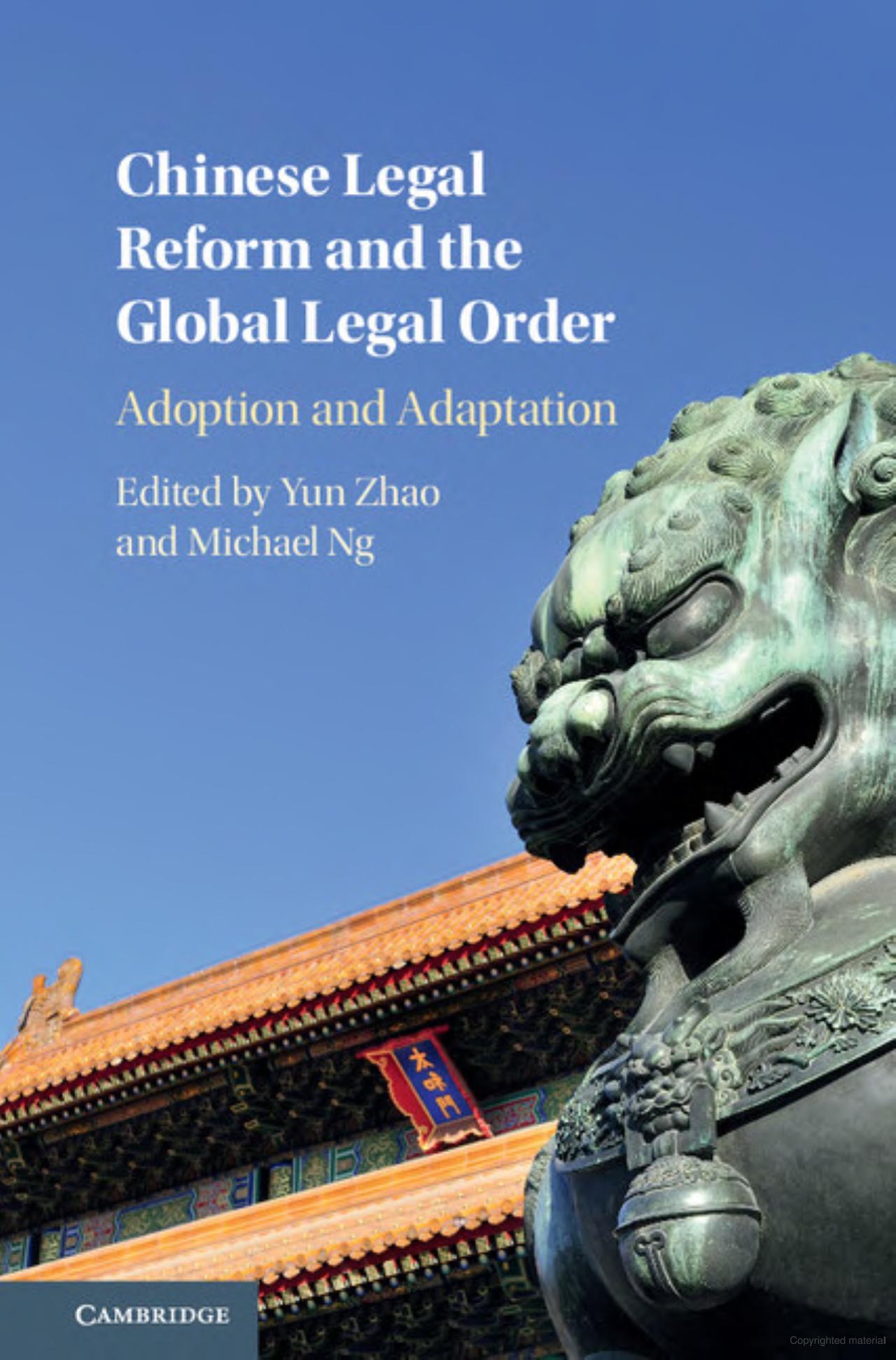China’s Unilateral Abrogation of the Sino-Belgian Treaty: A Case Study of a Deviant Transplantation (October 2017)
In Michael Ng and Zhao Yun (ed.), Chinese Legal Reform and the Global Legal Order: Adoption and Adaptation, Cambridge University Press, 2017.
About:
The Second Opium War (1856–1860) marks a turning point in the history of the transplantation of Western legal concepts to China. When international law was initially transplanted to China as a new discipline in the mid-nineteenth century, the Chinese literati used it instrumentally as a way of dealing with foreign ‘barbarians’. However, because of China’s internal weaknesses and inability to strike back at the Western powers, in the years after that war the Qing literati and jurists gradually began replacing the country’s no-longer-workable Sinocentric normative world-order with transplanted international law. By 1911, international law had replaced the traditional Chinese tribute system, and China was no longer in the hands of imperial dynastic rulers but was a sovereign state. One of the main assumptions of modern international law is sovereign equality. However, international society was highly unequal and hierarchical in the nineteenth century, and characterised by anti-pluralism, as it will be further defined in the next section. In this chapter, I argue that because of China’s different understanding of equal sovereignty, Chinese diplomats in the Republican period began to challenge the doctrine of juridical sovereignty as it was defined in the West. In particular, they opposed the dominant European doctrine of legal positivism, which promoted status and legalised hierarchies, with a concept of the sovereign equality of states that was grounded in a more pluralistic vision of the world. In this sense, the transplantation was partly deviant: it departed from the expectations of the Western powers and contributed to a renegotiation of the meaning of juridical sovereignty, placing it within a broader discourse that contributed at the same time to fulfil the more universalistic aspirations of international law, which were contained in the Western doctrine of that time. By adopting a pluralistic vision of international society, these diplomats defended China’s existential equality against the legalised hierarchies of the West. By the 1940s, China was fully recognised as an equal member of international society, had gained control over its tariffs and had put an end to extraterritoriality.

